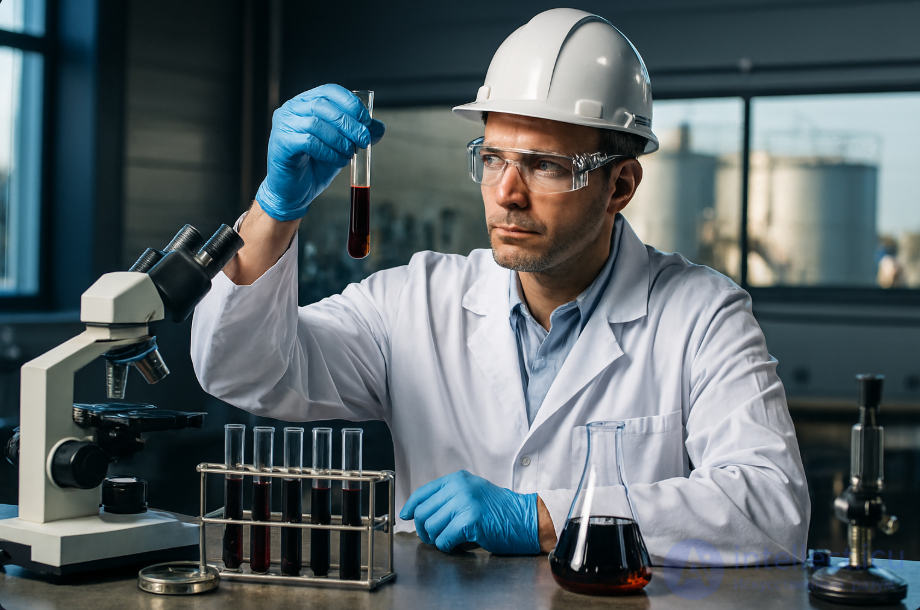Lecture
1. General characteristics of the profession
Conducts chemical and physico-chemical analysis of various substances: ores, petroleum and petroleum products, steels of various grades, alloys of metals, acids, salts, etc. necessary to control the compliance of products of the technological process and finished products with specified standards. Carries out the synthesis of substances in the laboratory.

2. Requirements for the individual characteristics of a specialist
Successful activity requires subtle color distinction, olfactory and tactile sensitivity, accurate hand-eye coordination at the level of hand movements, good visual memory, accuracy, pedantry.
3. Medical contraindications
The work is not recommended for people with diseases: respiratory organs (chronic bronchitis, chronic pneumonia, etc.); cardiovascular system (hypertension, heart failure, etc.); digestive organs (chronic liver diseases, chronic gastritis, etc.); kidney and urinary tract (nephritis, renal stone disease, etc.); nervous system (meningitis, myasthenia, etc.); skin localized on the hands (dermitis, eczema, etc.).
4. Requirements for training
Should know: fundamentals of general chemistry; safety regulations for laboratory research; calculation methods based on their results; GOST standards for analytes; laboratory equipment setup rules.
5. Related professions
Laboratory assistant of medical analysis, laboratory assistant of chemical and bacteriological analysis.
Comments
To leave a comment
Professions and specialties
Terms: Professions and specialties